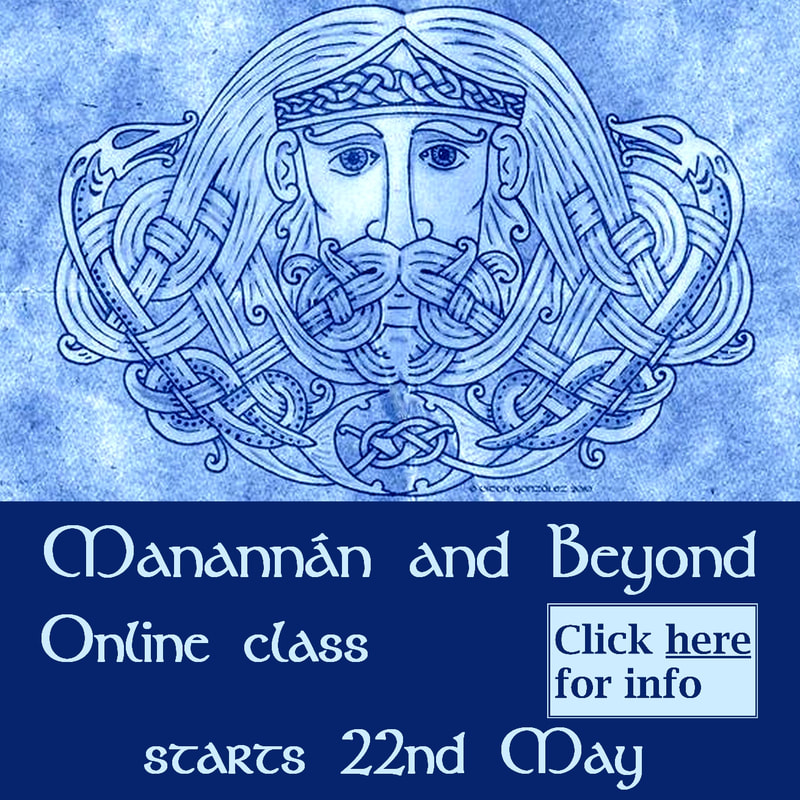I’ve seen a few questions this week about what “Celtic Paganism’s stance” is on abortion. Happily, none of the internet spaces I inhabit saw this turn into a fight. Most people gave answers similar to my own, and here’s mine:
First, Celtic Paganism is just an umbrella term. It’s not an organised religion, there is no official stance on anything. We have a collection of mythology and other early texts which are meaningful to many of us, but just like the Christian Bible, they are open to a variety interpretations.
There is nothing like Leviticus or the Ten Commandments in that body of lore. We do have the Irish Brehon Law and the Welsh Laws of Hywel Dda, but these are secular legal texts. They prioritise compensating the injured party far above any thought of punishment. Women have different, in many ways slightly better, rights than they did under the Norman laws which superseded them, but women were still very much an oppressed group. I’m not aware of any mention in either set of laws that human life is sacred. However, it’s pretty clear that wives were expected to produce children.
Like I said, these are secular laws, so unless you are trying to reconstruct the social order of the early Medieval period of Ireland or Wales in the comfort of your own home, you probably aren’t going to live by them, anyway. If fact, you can’t, because the rest of society doesn’t recognise them, and you live in a society, like it or not. These law codes are very useful for understanding the social order as presented in mythological texts, and they are a good springboard for some philosophical pondering.
According to this excellent article on the Brehon Law:
A man can divorce a woman (listed in Gúbretha Caratnaiad) if she is unfaithful, if she induces an abortion or if she is a habitual thief.
She was very ashamed to go to her husband’s bed pregnant by another, so she went to the bedstead and stabbed and beat her belly this way and that, until she was virgin-whole. Then she slept with her husband, and immediately became pregnant again.
People also quote the story of St Brigid of Kildare magicking away a woman’s embarassing pregnancy with a miracle, as if whatever the saint did, the goddess must surely approve of (as long as it fits their narrative). Pro-lifers will tell you that this is another myth which is open to interpretation, and in that, for once, they are probably right.
If you are looking for the perfect, “Well, according to my religion,” type of comeback in the abortion discussion, based on following Celtic Paganism, forget it!
The fact is that none of us know what the Druids (who were supposedly the judges of their day) thought about ending pregnancies, or what their judgement would have been on a thousand other things. But what if we did? What if tomorrow, somebody found a secret text from 100 BCE full of verifiable Druidical laws or moral codes? Would you just live by them? I doubt it. All that would happen would be a new set of debates about what they really intended - whether that bit about what to wear is relevant today, and whether it was worth risking prison to perform those human sacrifices.
And that’s good. As Pagans, some of us are very quick to judge people for following their religious texts and religious leaders without asking questions, weighing the evidence, examining their own consciences, and reaching rational personal conclusions about right and wrong. Not to mention being realistic about the need for compromise and tolerance of people who reach different conclusions.
One of the things I love about teaching mythology is that reading the myths and discussing what we think they might mean has the potential to raise the ethical intelligence of everyone in the conversation. In my opinion, that is the strength of myth, and I am wary of anyone who uses ancient texts in a fundamentalist way, and I am wary of those modern storytellers who reshape myths in order to force them to mean what they want them to mean – especially without telling the reader/listener what they’ve done. (If you need a story to help you make a point, maybe go write one, rather than changing something which is culturally significant in its current form so that you can claim ‘ancient indigenous wisdom’ backs your idea.)
We live in a society where a lot of people are very quick to quote some kind of holy writ as the ultimate authority in every question: whether that’s the Koran, the US constitution, the Diagnostic and Statistical Manual of Mental Disorders, or even the Bible. I think it makes us philosophically lazy. The questions seem too hard for us. We aren’t used to looking at issues from all sides, or trying the experiment of laying our emotions or our cultural conditioning aside and attempting a bit of objectivity. Our culture doesn’t even condition us to consider objectivity as an option. We want to know what our tribe thinks, so we can think the same and avoid cancellation on social media, or even professionally.
Celtic Paganism is not going to offer you a moral code, but it can offer you some great tools for arriving at your own sense of ethics. Thinking is hard work, but it’s all we’ve got.
For the record, I believe that every woman should have the right to end her pregnancy at any time, for any reason.


 RSS Feed
RSS Feed




